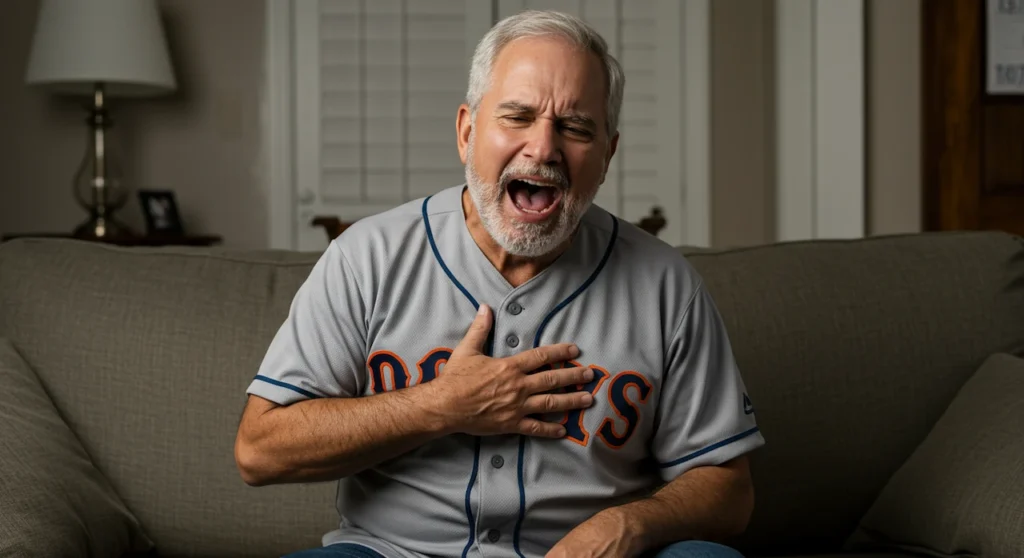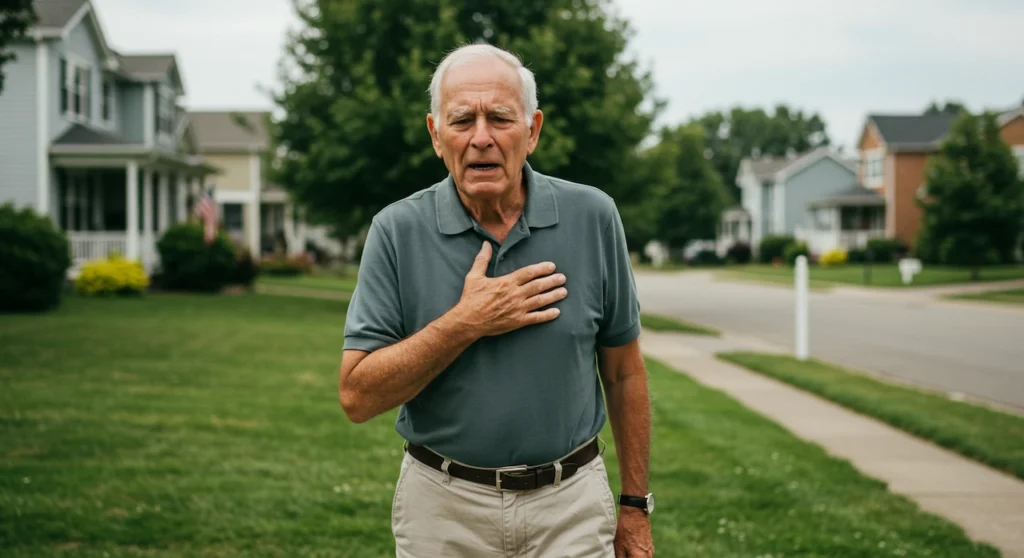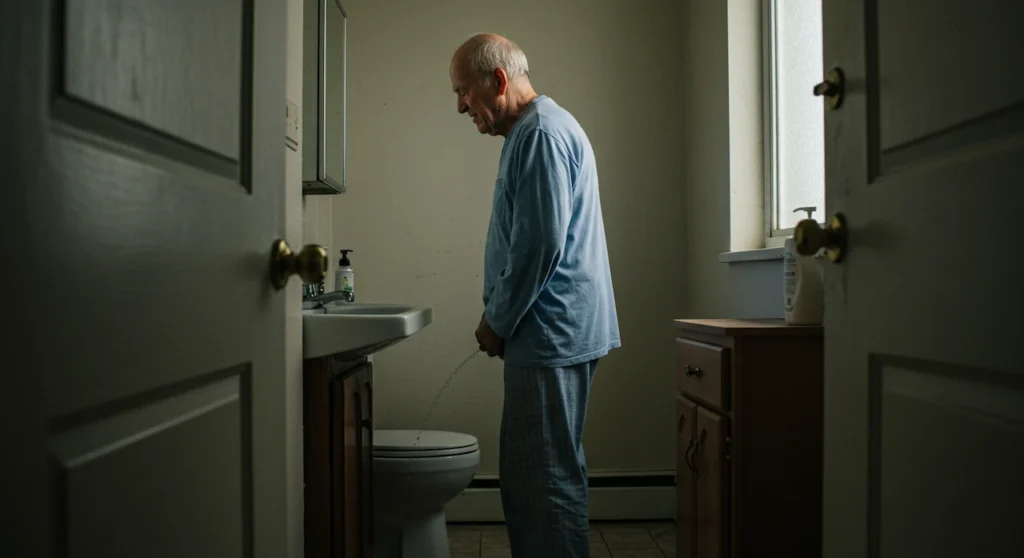Anúncio
Your heart talks to you every single day. But most of us are terrible listeners. While we wait for the dramatic chest-clutching moment we see in movies, our hearts are already whispering urgent messages through subtle signs that seem totally unrelated to heart problems.
Anúncio
The scary part? By the time you feel that classic chest pain, your heart has been crying for help for months… maybe even years.

Your Energy Crashes for No Clear Reason
You probably know what it feels like to hit that 3 p.m. wall—the sluggishness, the mental fog, the sudden urge to nap. But what if that kind of exhaustion starts happening more frequently, and not just on stressful days? When your heart isn’t pumping effectively, your body receives less oxygen. This lack of oxygen-rich blood can drain your energy, making even routine tasks feel unusually tiring.
Anúncio
Chronic fatigue caused by heart dysfunction doesn’t improve much with rest. That’s a key difference. It lingers and even worsens, despite sleeping well or reducing physical activity. Many people write this off as aging or burnout. But when the heart can’t meet the body’s energy demands, fatigue becomes more than an inconvenience—it’s a warning.
In heart failure or early cardiovascular disease, the body redirects blood away from “less vital” areas like muscles and skin to prioritize the brain and organs. This conservation effort, while protective, leaves you feeling like you’ve run a marathon before the day even begins. If you’re consistently wiped out without a clear reason, your cardiovascular system might be underperforming behind the scenes.

You Get Winded Doing Things That Used to Be Easy
Let’s be honest—no one enjoys panting at the top of the stairs. But if simple chores like making the bed, grocery shopping, or walking a few blocks suddenly leave you breathless, something’s off. This kind of unexpected shortness of breath, especially with mild exertion, can be an early indicator that your heart is no longer functioning at full capacity.
The heart and lungs work in tandem. When the heart falters, the lungs may struggle to keep up. You might notice you need to rest more often or that your breathing feels heavy or labored—even without intense physical activity. What’s more, this breathlessness often comes with a sense of discomfort in the chest, light-headedness, or excessive sweating.
These changes are not just signs of deconditioning. If you’ve been reasonably active and suddenly can’t do what you used to without stopping to catch your breath, it could signal heart-related stress or the early stages of congestive heart failure. Don’t chalk it up to getting older—your heart might be waving a red flag.
Your Feet and Ankles Swell Up
Occasional swelling in the legs and feet can be harmless, especially after a long day on your feet or a salty meal. But when that puffiness becomes routine—or doesn’t go away overnight—it might point to deeper trouble. The heart plays a crucial role in circulating blood throughout the body. When its pumping ability weakens, blood can start to pool in the lower limbs, leading to noticeable swelling.
This swelling, known as peripheral edema, tends to show up around the ankles, feet, and sometimes even the lower abdomen. It might be more pronounced at the end of the day and improve slightly after a night of lying down. But in many cases, it returns the next day—sometimes worse.
The swelling is often painless but may feel tight or heavy. Your shoes might not fit like they used to, or socks may leave deep imprints. This isn’t just a cosmetic concern. It’s a fluid imbalance that signals your heart is struggling to manage the demands of circulation. Pay attention if it becomes a daily occurrence—it may be more than just salt retention.

You Wake Up Needing to Pee Multiple Times
You might not think of frequent nighttime urination as a heart-related issue, but it’s more connected than most realize. When your heart’s pumping ability declines, it causes fluid to build up in the body during the day. This excess fluid accumulates mostly in the lower body due to gravity.
At night, when you lie flat, gravity redistributes the fluid back into the bloodstream. Your kidneys, now receiving more blood flow, ramp up urine production—forcing you to make more trips to the bathroom. This condition, called nocturia, can be annoying and disruptive to sleep, but it also offers a valuable clue about your heart’s performance.
Most people assume this is just part of aging or a minor bladder issue. But if you’re waking up multiple times a night without increasing your evening fluid intake—or if this symptom appears alongside swelling, fatigue, or breathlessness—it might reflect compromised cardiac function.
You Start Snoring or Your Sleep Gets Worse
Sudden changes in sleep quality often go ignored, blamed on stress, caffeine, or a noisy environment. But deteriorating sleep—especially when it comes with new snoring or waking up gasping for air—can be closely tied to heart health. One of the reasons is that poor heart function can cause fluid to accumulate in the lungs, making breathing harder when lying flat.
This might result in symptoms like sleep apnea, restless sleep, or frequent awakenings. People with undiagnosed heart issues often report “choking” sensations at night, difficulty staying asleep, or waking up exhausted even after a full night in bed. Some develop a habit of sleeping in a recliner or propping themselves up with pillows just to breathe easier.
These aren’t normal changes. Sleep disturbances tied to heart problems can worsen over time and accelerate cardiovascular strain. If your sleep patterns shift noticeably—and you or your partner notice heavier snoring, especially accompanied by daytime fatigue—it might be time to examine your cardiovascular status more closely.
Your Thinking Gets Foggy
Mental clarity relies heavily on a healthy flow of blood to the brain. When the heart fails to pump adequately, the brain doesn’t get the oxygen and nutrients it needs. The result? You feel mentally foggy, forgetful, or unusually slow in your thinking.
This type of cognitive impairment can creep in gradually. You may misplace things more often, struggle to follow conversations, or lose your train of thought during tasks. Many people blame this on aging or stress, but in reality, your brain may be underpowered due to poor circulation.
When blood supply to the brain is compromised, it affects areas responsible for memory, attention, and executive function. Over time, these small disruptions can impact your work, relationships, and emotional well-being. If these changes appear alongside other symptoms like fatigue or breathlessness, they’re not just mental—they’re physical signs your heart might be faltering.
You Feel Anxious or Restless for No Reason
Ever had a moment when your body felt off, but you couldn’t explain why? That vague unease, nervous energy, or restlessness can sometimes be your body’s internal alarm system. Anxiety without a clear trigger—especially if it’s new and persistent—might be your nervous system’s way of alerting you to heart trouble.
The heart and the nervous system are tightly connected. When your heart starts to struggle, your body compensates by activating the sympathetic nervous system—your “fight or flight” response. This can manifest as racing thoughts, jitteriness, an inability to relax, or even a sense of doom.
It’s easy to write this off as stress or poor sleep. But if the anxiety is new, frequent, or coupled with other physical symptoms like shortness of breath or chest discomfort, your heart may be driving this emotional shift. In many cases, patients report that “something just didn’t feel right” long before they were diagnosed with heart issues.
Recognizing this symptom isn’t about overreacting—it’s about tuning into a deeper internal language your body is using to get your attention.
Conclusion
Your heart doesn’t wait for permission to speak—it communicates in whispers long before it screams. And while it might be easy to dismiss these signs as everyday annoyances, they often carry more weight than we realize.
Understanding these seven early warning signs of heart problems isn’t about living in fear—it’s about listening more closely to the body that supports us. If these symptoms resonate with your daily experience, it may be time for a conversation with a trusted healthcare provider. Catching cardiovascular trouble early doesn’t just save lives—it improves the quality of the years ahead.
This article is for informational purposes only and is not intended as a substitute for professional medical advice, diagnosis, or treatment. Always consult with a qualified healthcare provider if you suspect a medical condition.
